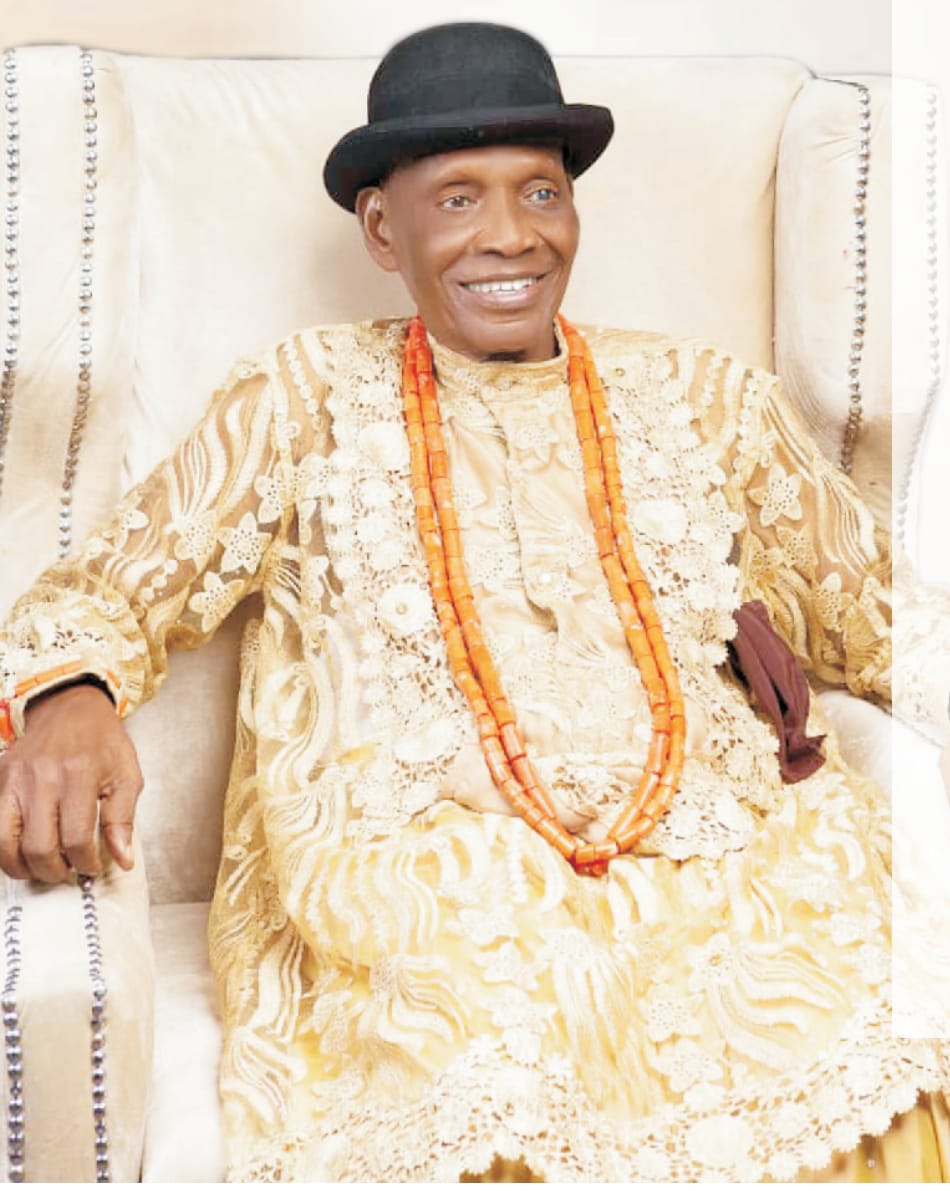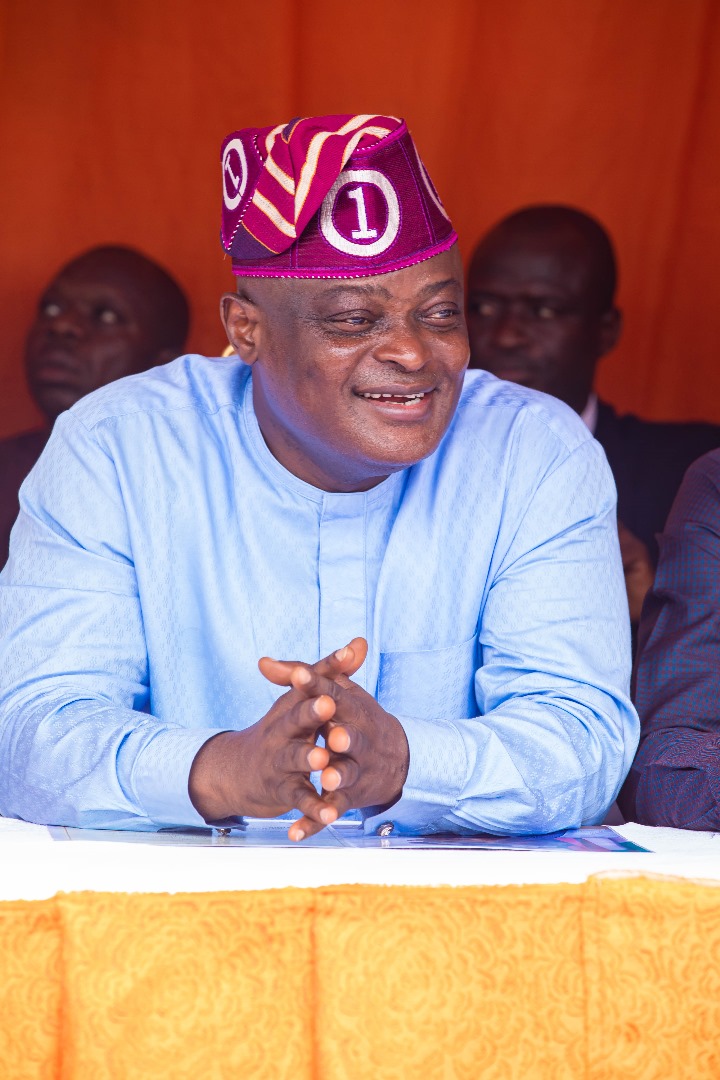Papa Fred Agbeyegbe At 90 — A Vanguard of Stage, Law and Activism
BY ADEYEMI ASEPERI-SHONIBARE

Fred Omadeli Agbeyegbe, the distinguished playwright, lawyer, publisher, and cultural figure, turns 90 on July 22. A man of vision and intellect, he has spent decades using the stage not for entertainment alone, but as a tool for social inquiry, political critique, and cultural preservation.
He is one of Nigeria’s most fearless and creative minds—an artist who gave meaning to theatre as conscience.
Legacy of the 1980s: Plays That Reshaped the National Stage
In the 1980s, Fred Agbeyegbe stood at the centre of Nigeria’s theatrical revival. His four major plays —The King Must Dance Naked, Woe Unto Death, The Last Omen, and Budiso— directed by the late Jide Ogungbade and performed at the National Theatre, Iganmu, stirred the soul of the nation.
The King Must Dance Naked is one of the most influential Nigerian plays of the post-independence era.
In it, Queen Odosun challenges the custom of child sacrifice, proclaiming, “No woman who has endured labour would give her child up for sacrifice.” The line cuts deep into patriarchal tradition and raises questions about the cost of blind obedience to culture.
Budiso, a politically charged satire, mocked authoritarian rule and military excesses. The play coined the memorable and enduring question: “Is the law an ass?” Agbeyegbe’s writing confronted injustice head-on and offered the audience a mirror through which to reflect on their reality.
These works were more than drama. They were public interventions, presented through rhythm, ritual, irony, and ancestral language. They embodied the spirit of Ajofest and Ajo Productions—platforms Agbeyegbe created to preserve and promote indigenous storytelling and socially relevant theatre.
Voices of Praise
Fred Agbeyegbe’s influence spans generations. Theatre critic and cultural advocate Ben Tomoloju once said, “He wove artistry into idea and idea into artistry.”
Professor G. G. Darah described him as “a revolutionary democrat and activist… an ideological rebel.”
Over the years, his plays have received critical and academic attention, and his ideas have shaped conversations within and beyond Nigeria’s theatre circles.
Revivals and Enduring Impact
Agbeyegbe’s plays have not only endured—they have grown in relevance. New generations of actors and directors continue to bring his work to life. Recent revivals of The King Must Dance Naked featured notable performers including Joke Silva, Gloria Young, Taiwo Ajayi-Lycett, Toyin Oshinaike, Zara Udofia-Ejoh, and Edmond Enaibe.
Public figures such as Babatunde Fashola, Minister Hannatu Musawa, and veteran journalist Sam Amuka-Pemu have attended these performances, underscoring the continuing cultural value of Agbeyegbe’s vision.
Actress Joke Silva once remarked, “Anybody who has performed in The King Must Dance Naked sees their career take off. It is not the easiest play to perform, but it elevates you.”
Publications and Literary Contributions
Agbeyegbe has written more than thirteen plays and three volumes of poetry. His works include The Will, My Grandfather’s Ghost, Stop and Bullet, Woe Unto Death, The Reincarnation Lovers, Conflict Resolution, and The Tombs of Westminster Abbey. His writing is marked by philosophical clarity, historical depth, and dramatic tension.
In addition to being a dramatist, he is a poet, essayist, and publisher. His literary and intellectual output has shaped conversations in both cultural and academic spaces, reinforcing his role as a builder of thought and dialogue.
A Man of Cultural Depth and Conviction
Born in Warri, Delta State, in 1935, Fred Agbeyegbe identifies deeply with his Itsekiri heritage.
“I was an Itsekiri man before I became a Nigerian,” he once said. This sense of rooted identity permeates his work—evident in his use of indigenous names, ancestral motifs, and traditional belief systems.
As a lawyer and publisher, he pursued justice. As a writer and performer, he pursued meaning. As a citizen, he pursued change. His work sits at the intersection of law, theatre, and activism—each reinforcing the other.
Family, Charity, and Mentorship
Away from public life, Fred Agbeyegbe is a devoted family man —deeply loved by his children, grandchildren, relatives, and close friends. He is affectionately known as “Papa Fred,” not only for his wisdom, but for his warmth, humour, and generosity.
He is also known for his quiet philanthropy —supporting young artists, students, and creative projects with little fanfare. His work with Ajofest ‘86 and Ajo Productions helped nurture some of the brightest talents in Nigerian theatre, including Joke Silva, Olu Jacobs, Richard Mofe-Damijo, Anta Laniyan, and Taiwo Ajayi-Lycett. His mentorship and generosity have touched lives across the country and beyond.
A Tribute in Time
At 90, Fred Agbeyegbe stands as a giant in Nigerian cultural history. His words have unsettled power, defended the weak, and given voice to the forgotten. His plays are not only pieces of literature but instruments of reform and awakening.
He is a man of fierce integrity and enduring relevance. His work reminds us that tradition must be questioned, that justice must be pursued, and that theatre must be a space for truth.
Fred Agbeyegbe is not just a playwright. He is a national memory keeper, a conscience for the stage, and a man who turned drama into dialogue.
At 90, he remains a teacher, a mentor, a light.
Barrister Fred Agbeyegbe is our cultural custodian, our truth-teller on stage, our legend —a man who reshaped Nigerian theatre and held high the banner of justice, dignity, and the transformative power of words.












